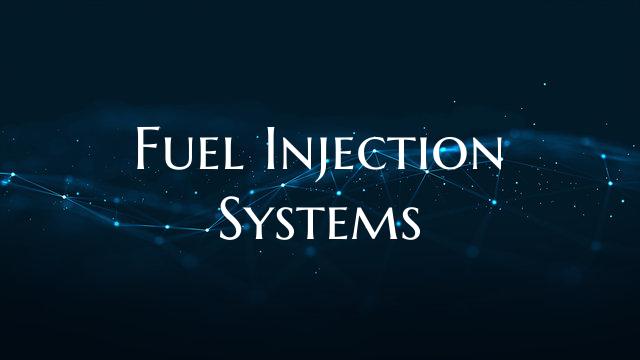Fuel Injection Systems
Fuel injection systems play a vital role in the efficient operation of modern vehicles. Gone are the days of carburetors; today, fuel injection systems have become the standard in the automotive industry for delivering fuel to the engine. Understanding how these systems work is crucial for both vehicle owners and automotive enthusiasts. Let's delve into the intricacies of fuel injection systems and their significance in today's vehicles.
1. Types of Fuel Injection Systems: - There are mainly three types of fuel injection systems: - Throttle Body Injection (TBI): This system injects fuel into the throttle body, where it mixes with air before entering the combustion chamber. - Multi-Port Fuel Injection (MPI): MPI systems inject fuel directly into each cylinder's intake port, allowing for precise fuel delivery. - Direct Injection (DI): DI systems inject fuel directly into the combustion chamber, leading to better fuel efficiency and performance.
2. Components of a Fuel Injection System: - Fuel Injector: The fuel injector is responsible for spraying fuel into the combustion chamber or intake port. - Fuel Pump: The fuel pump delivers fuel from the tank to the injectors at the correct pressure. - ECU (Engine Control Unit): The ECU controls the fuel injection system based on inputs from various sensors like the throttle position sensor and oxygen sensor.
3. Benefits of Fuel Injection Systems: - Improved Fuel Efficiency: Fuel injection systems deliver the precise amount of fuel needed, resulting in better fuel economy. - Enhanced Performance: The precise control of fuel delivery enhances engine performance and responsiveness. - Reduced Emissions: By optimizing fuel combustion, fuel injection systems help reduce harmful emissions, making vehicles more environmentally friendly.
4. Common Fuel Injection System Issues: - Clogged Injectors: Over time, injectors can get clogged with dirt and debris, leading to poor engine performance. - Fuel Pump Failure: A failing fuel pump can result in inadequate fuel delivery to the injectors, causing engine misfires. - Sensor Malfunctions: Issues with sensors like the mass airflow sensor or oxygen sensor can disrupt the fuel injection system's operation.
In conclusion, fuel injection systems are a crucial component of modern vehicles, offering benefits such as improved fuel efficiency, enhanced performance, and reduced emissions. By understanding how these systems work and recognizing common issues, vehicle owners can ensure the proper maintenance and functioning of their vehicles. As automotive technology continues to evolve, fuel injection systems will likely undergo further enhancements to meet future efficiency and performance standards.

